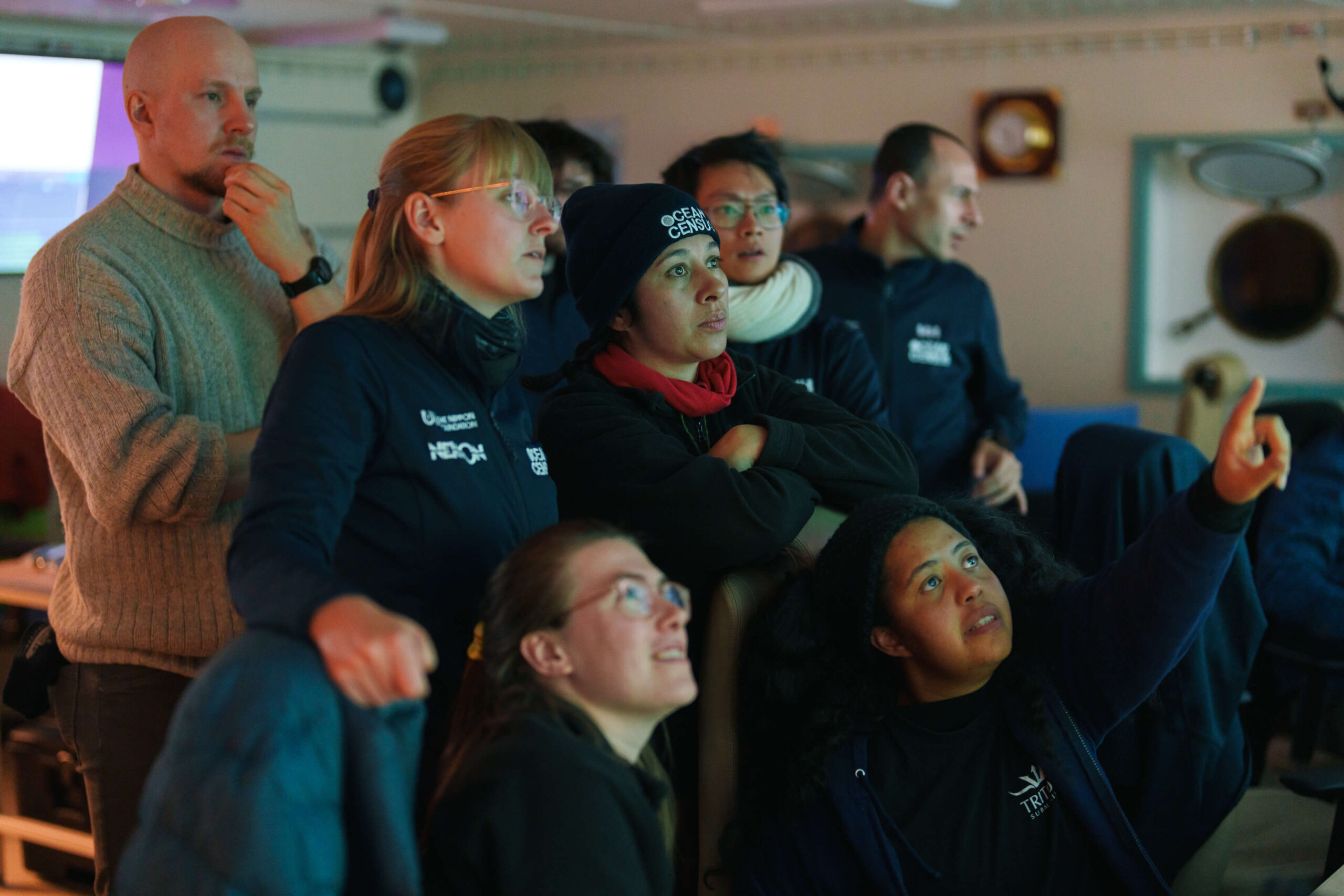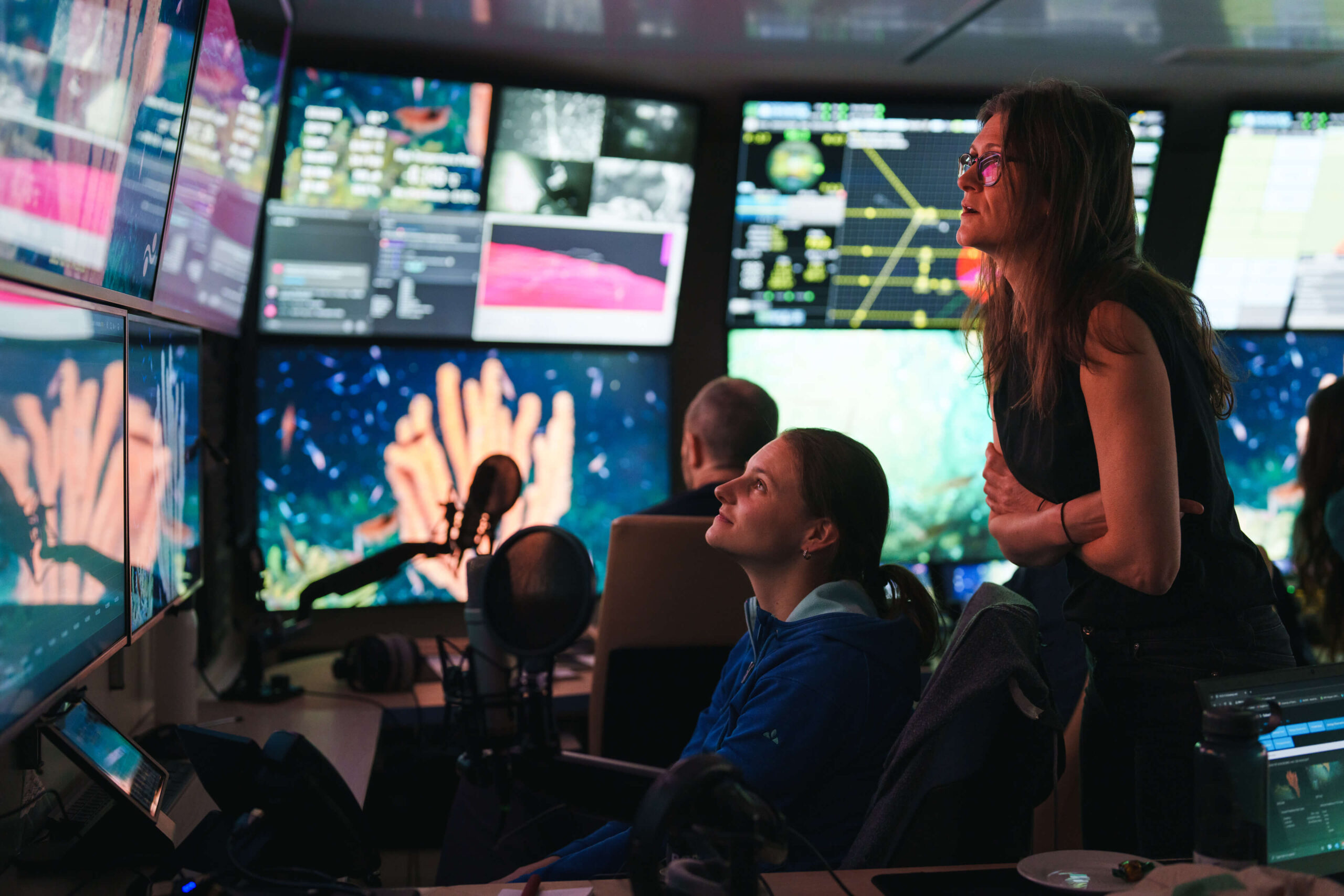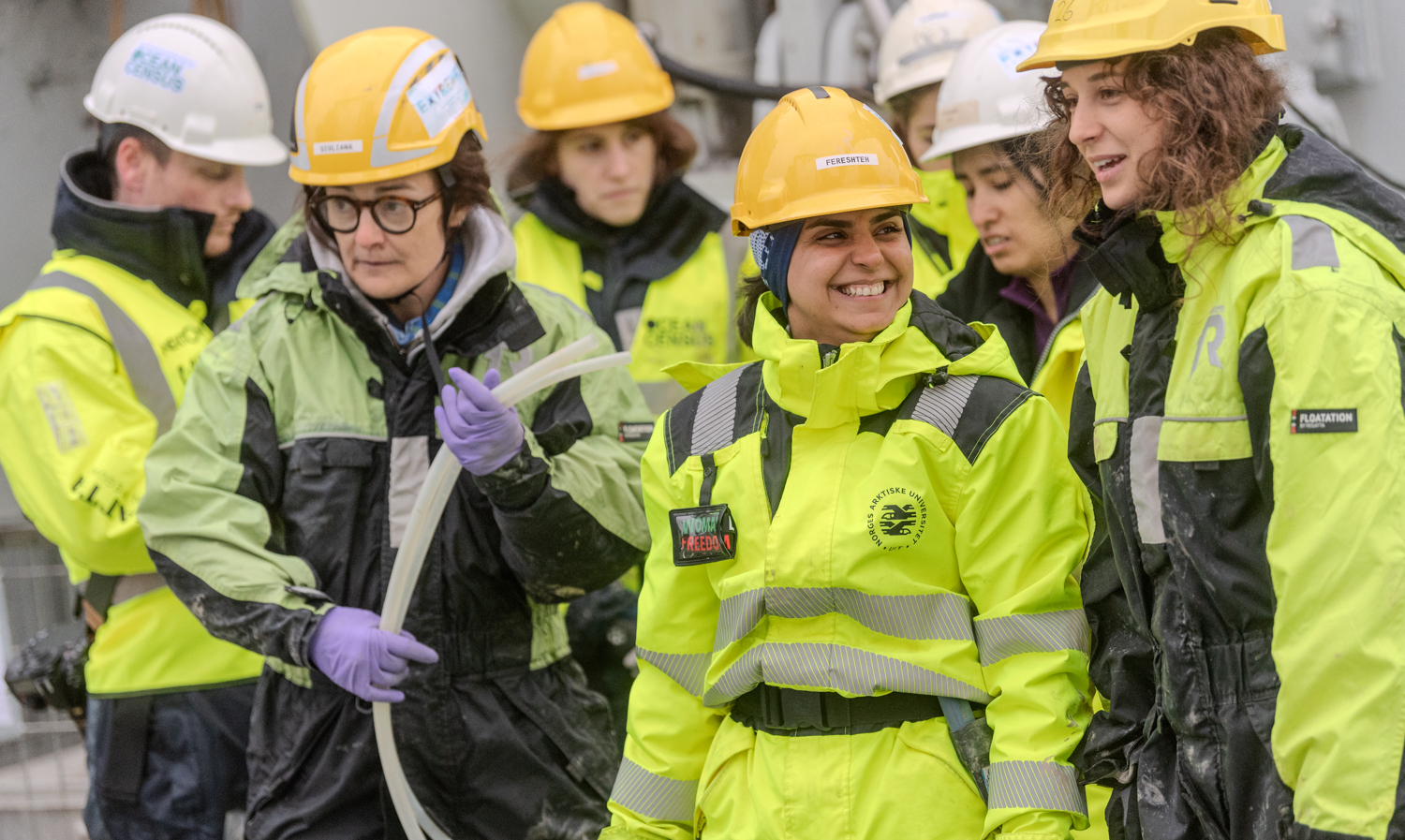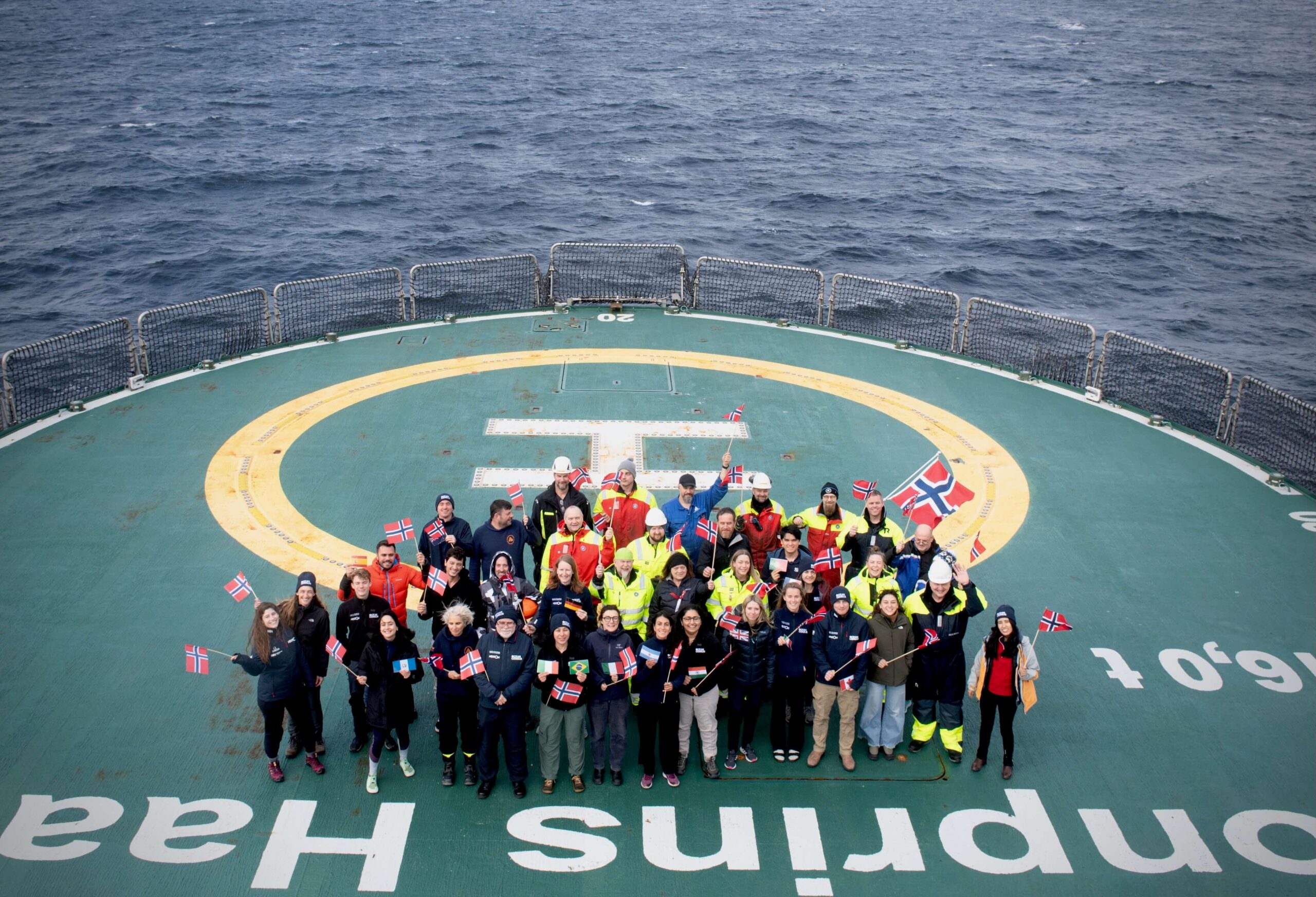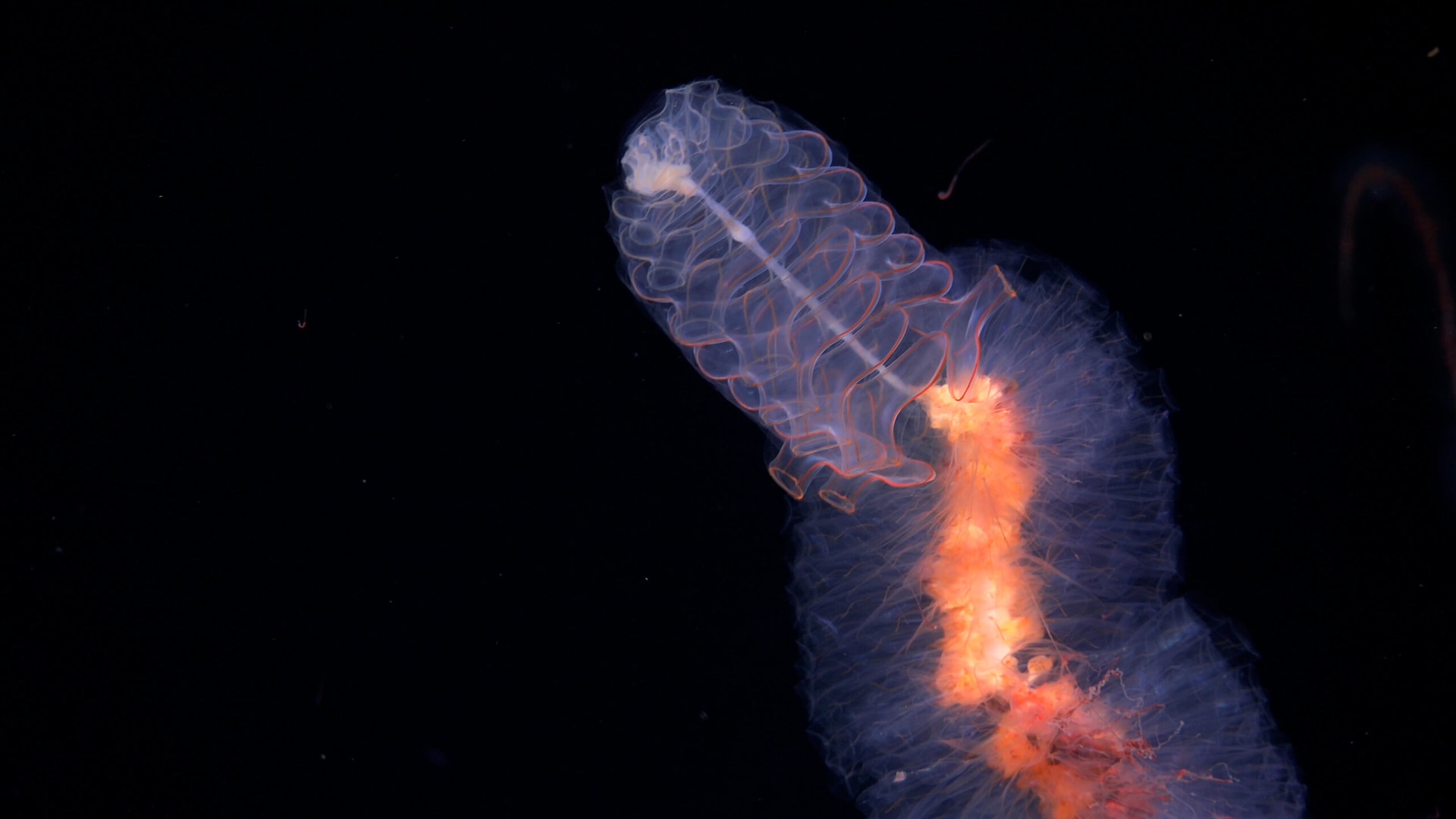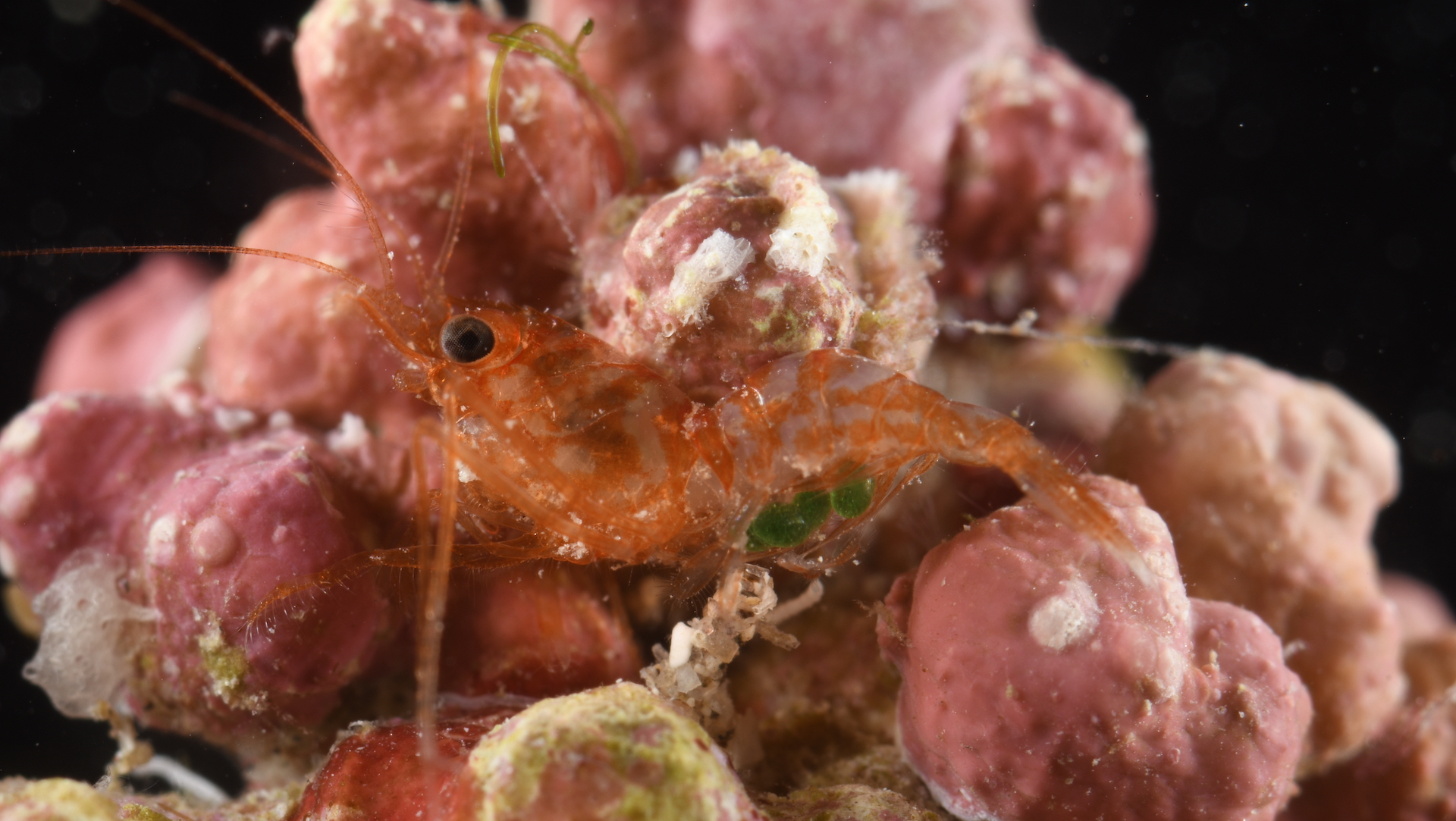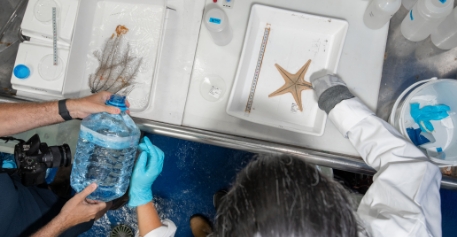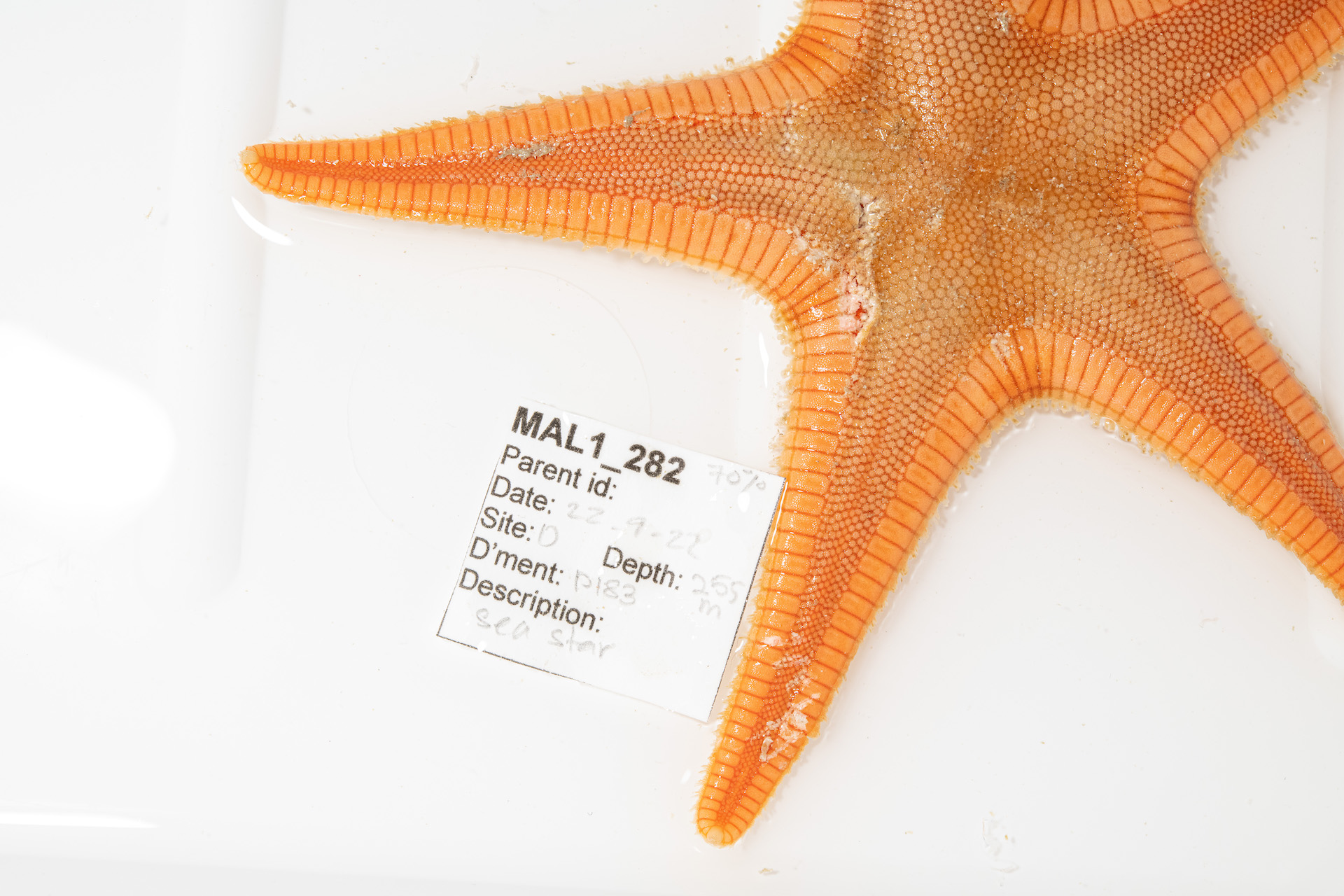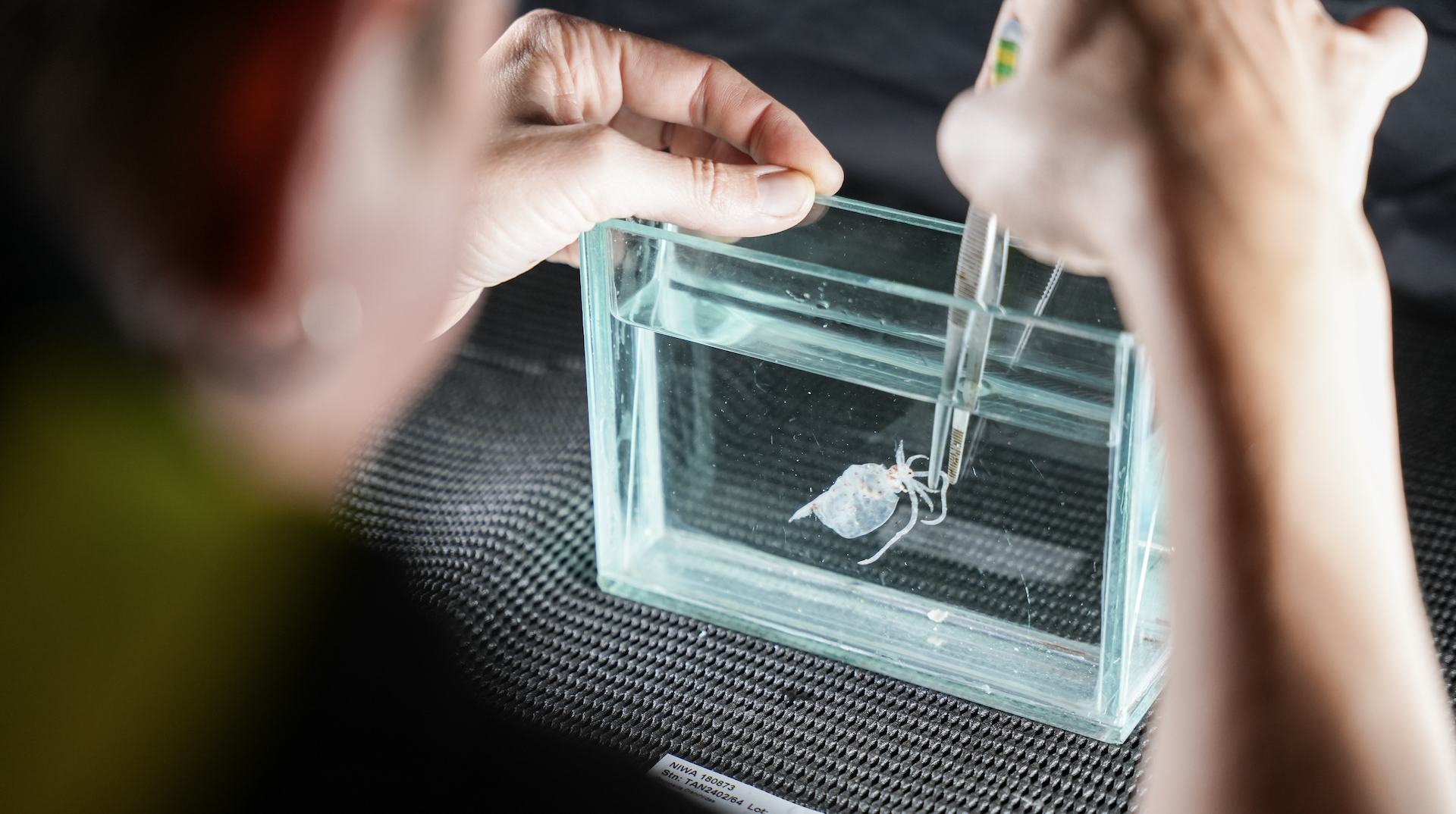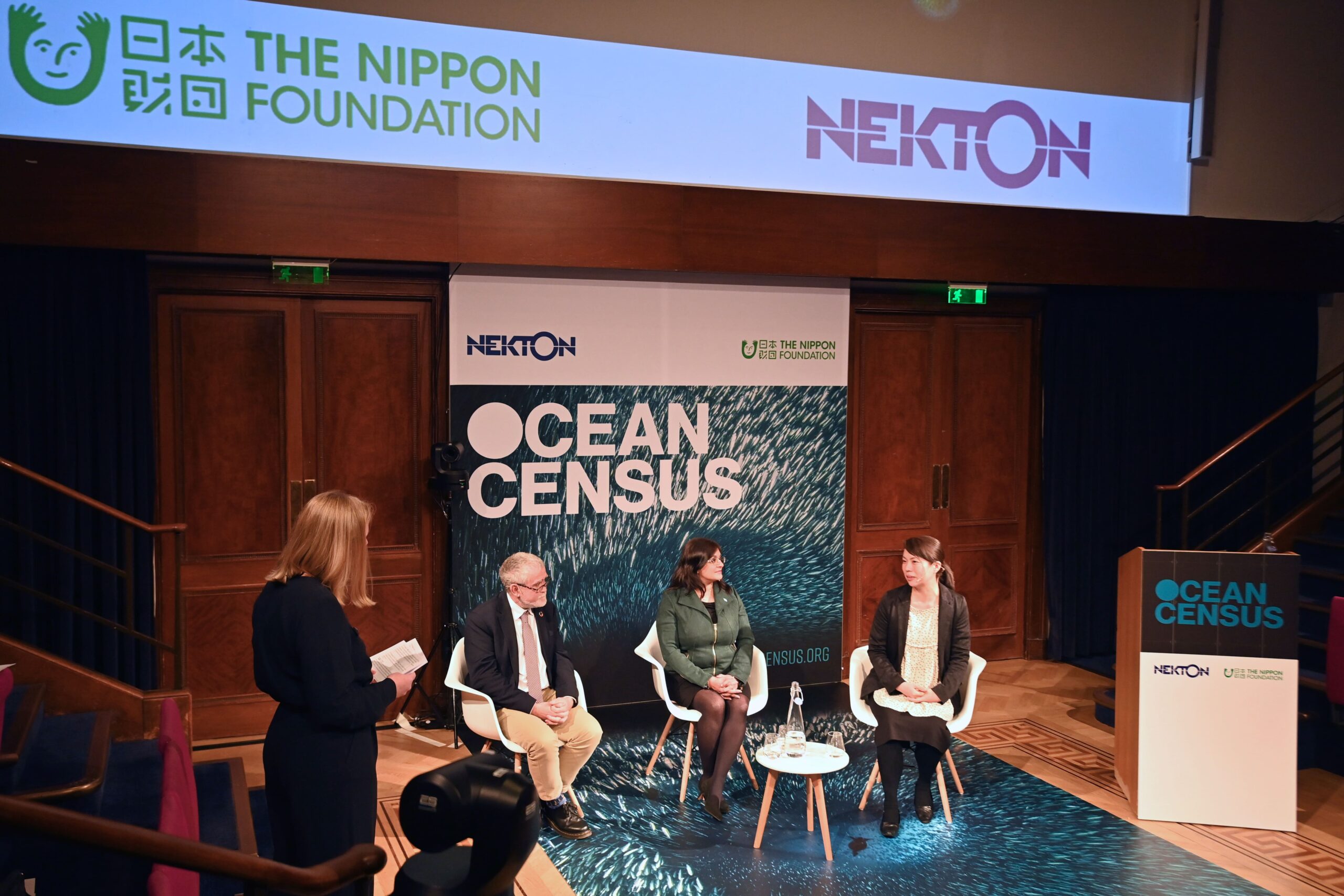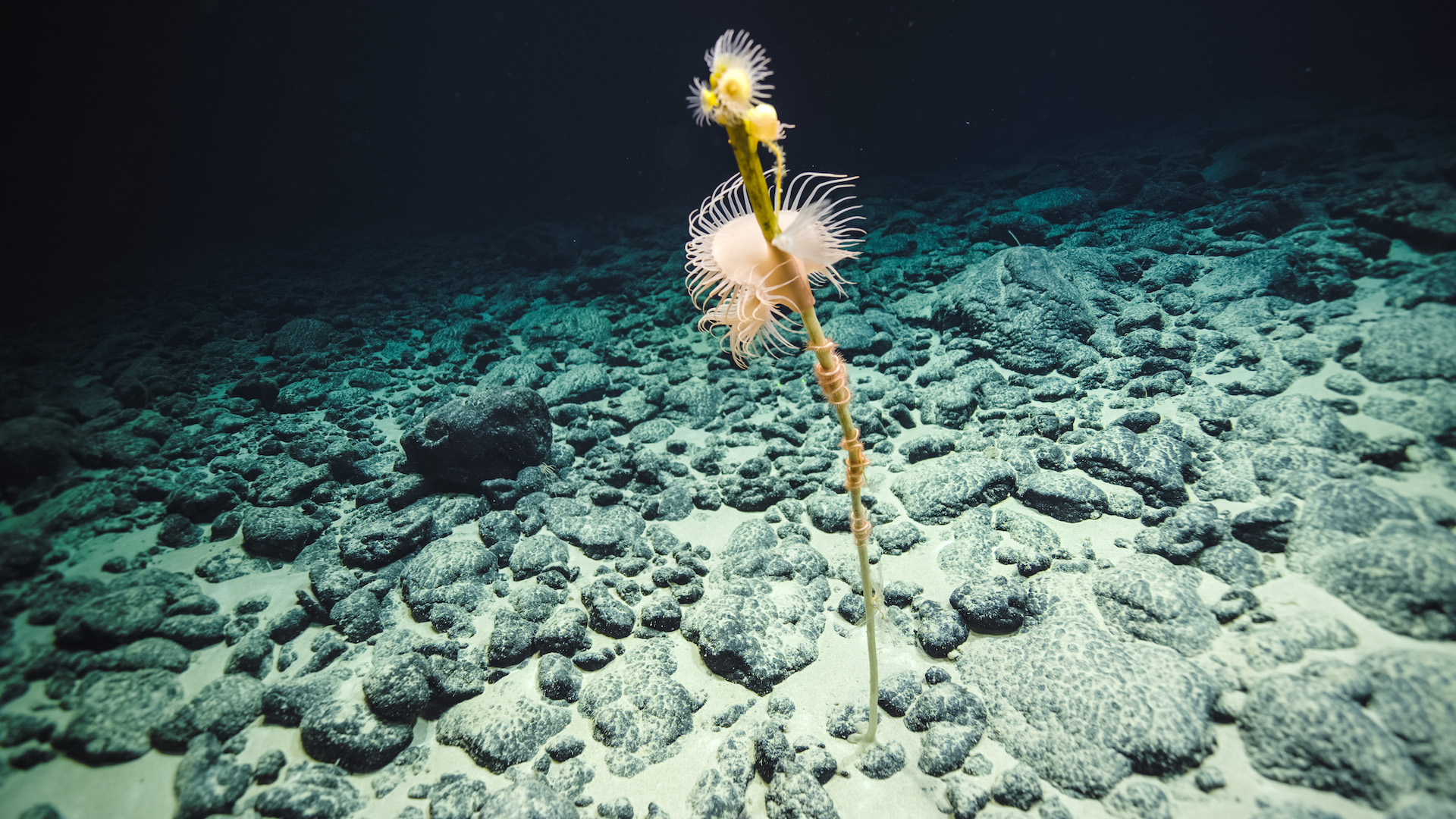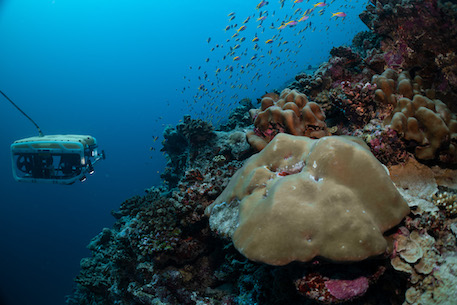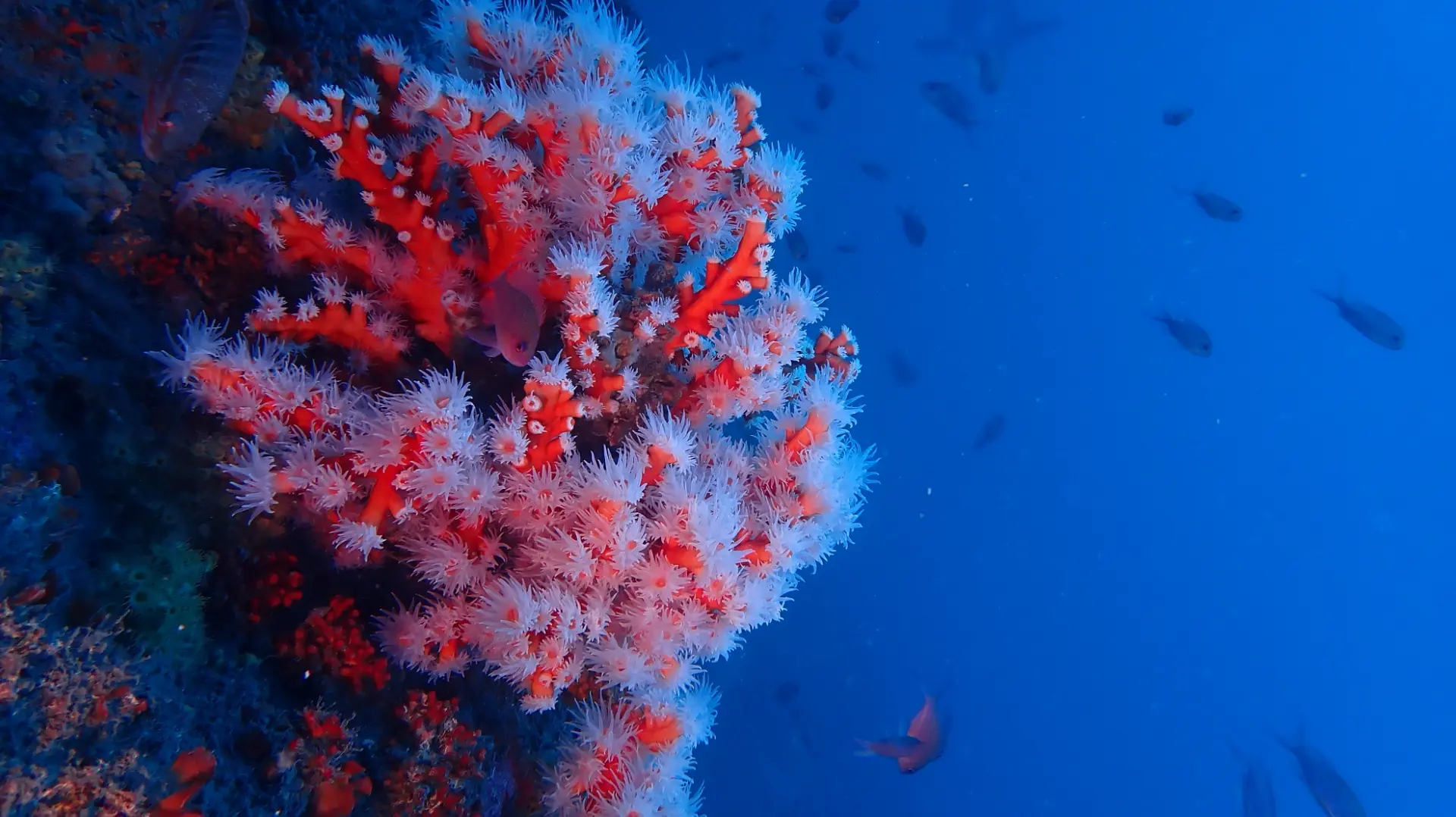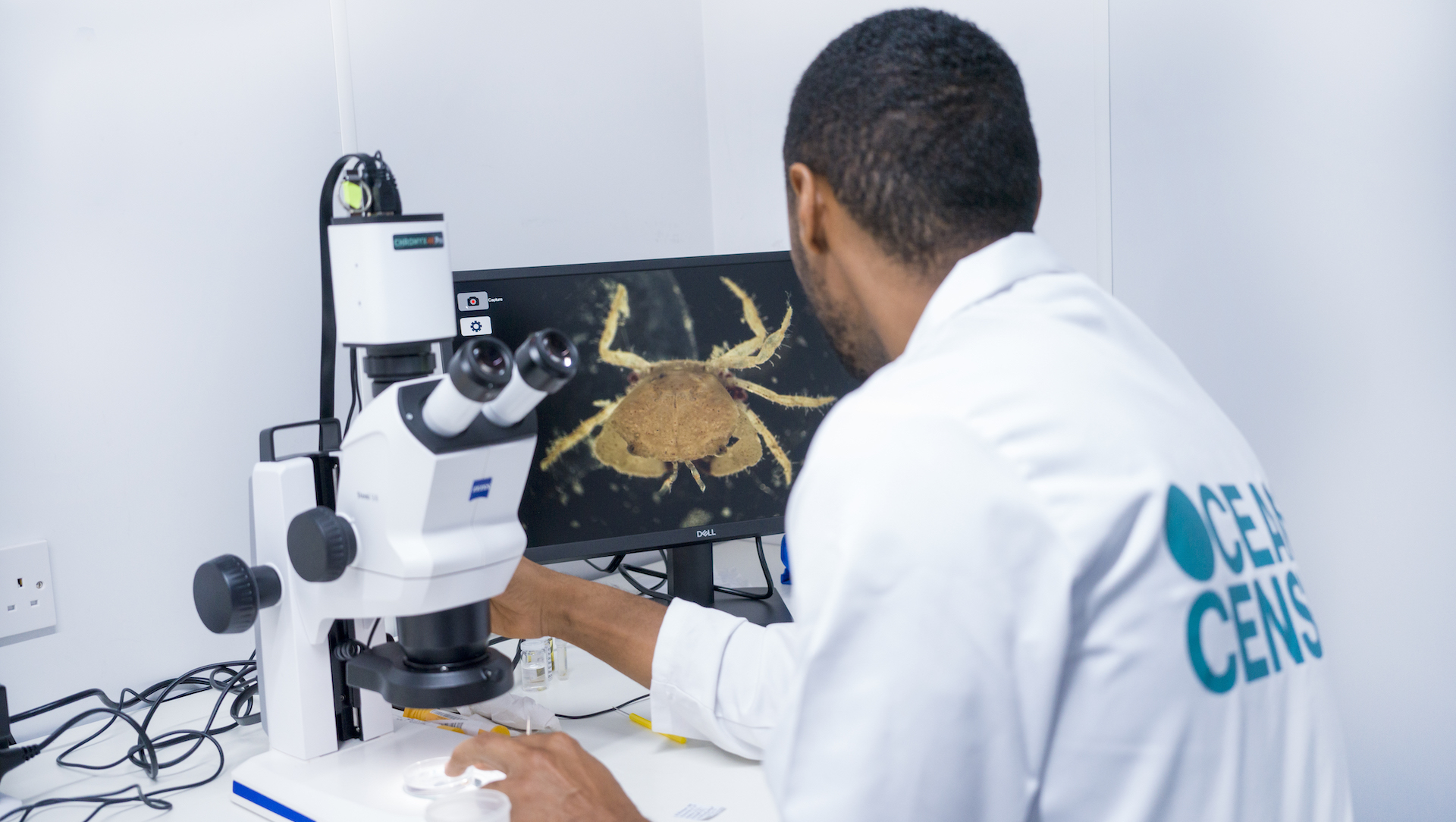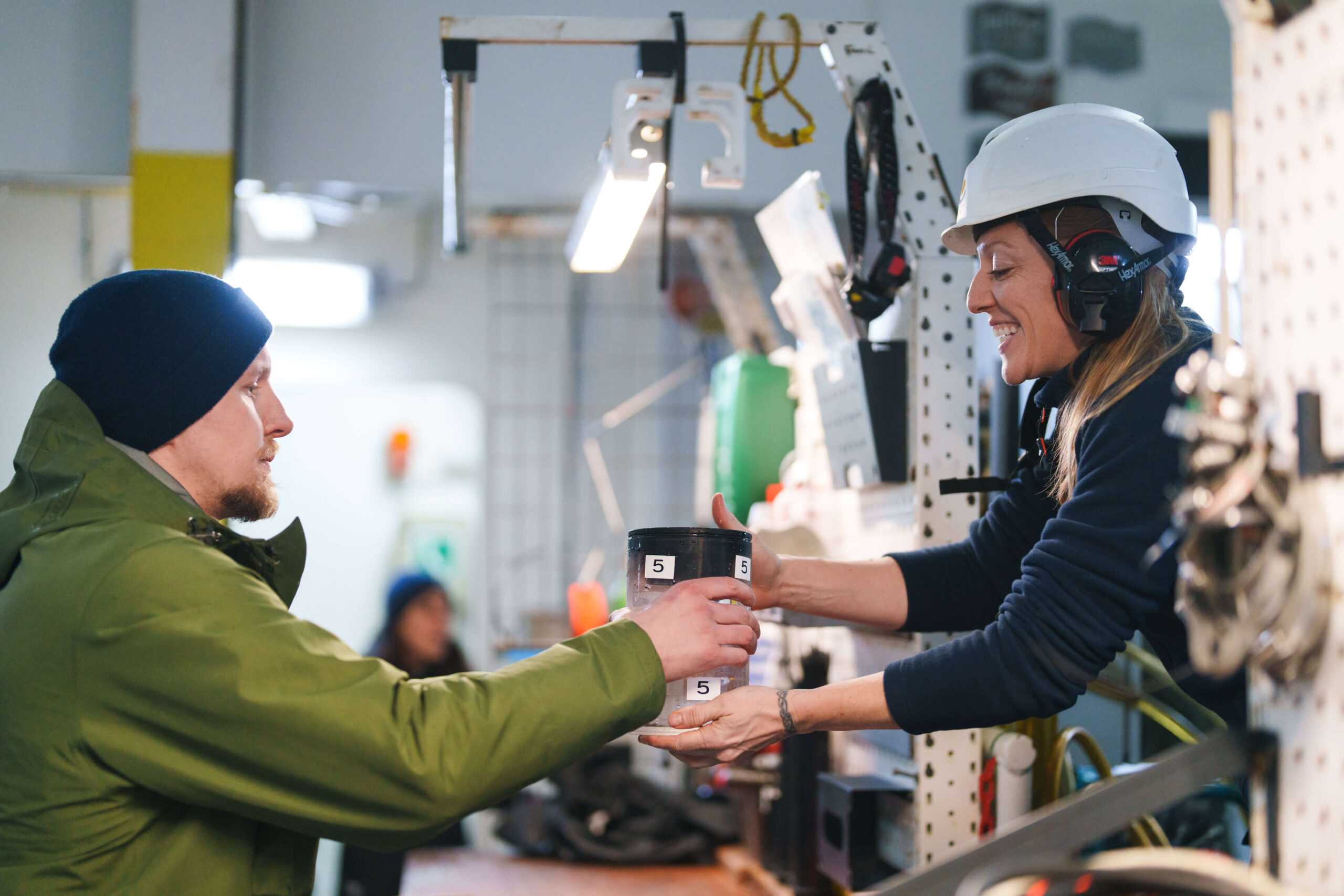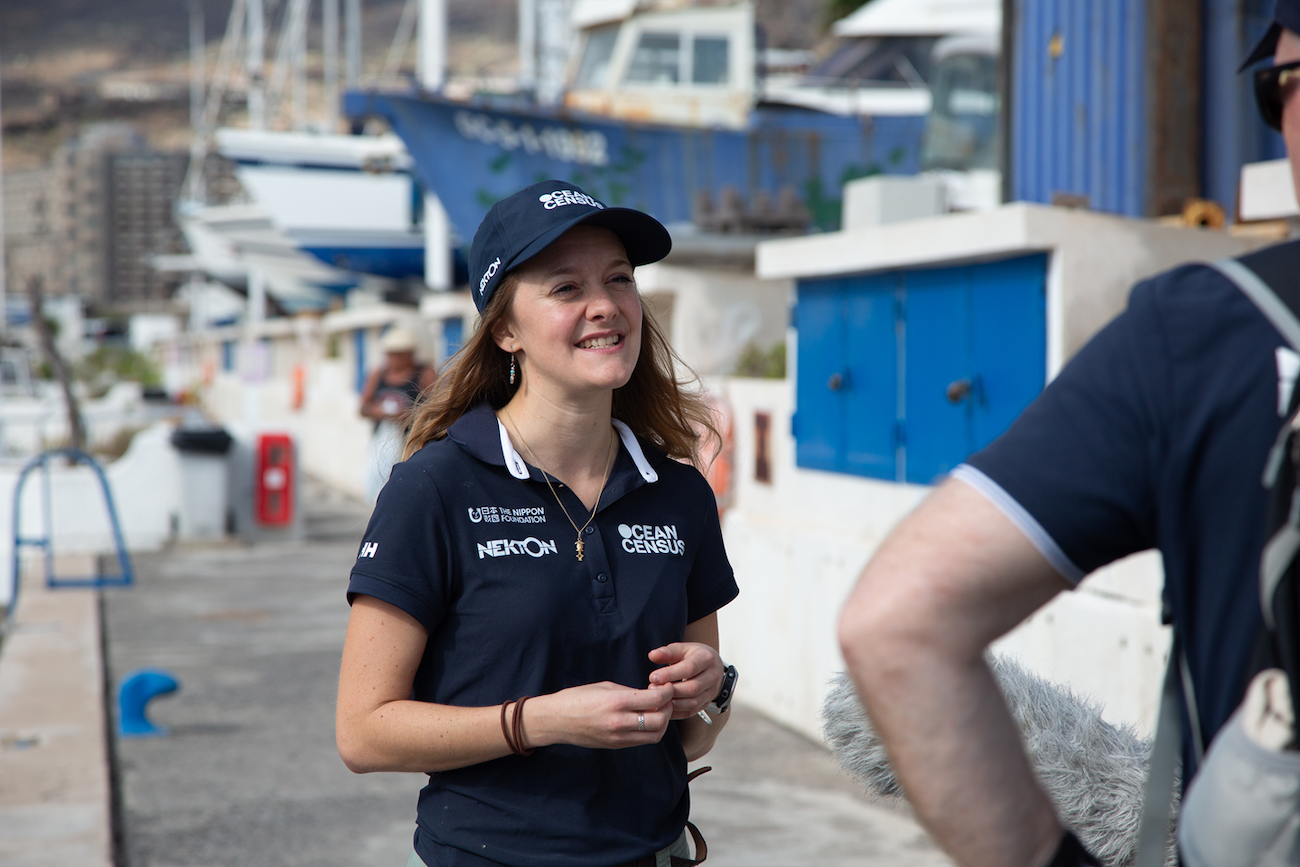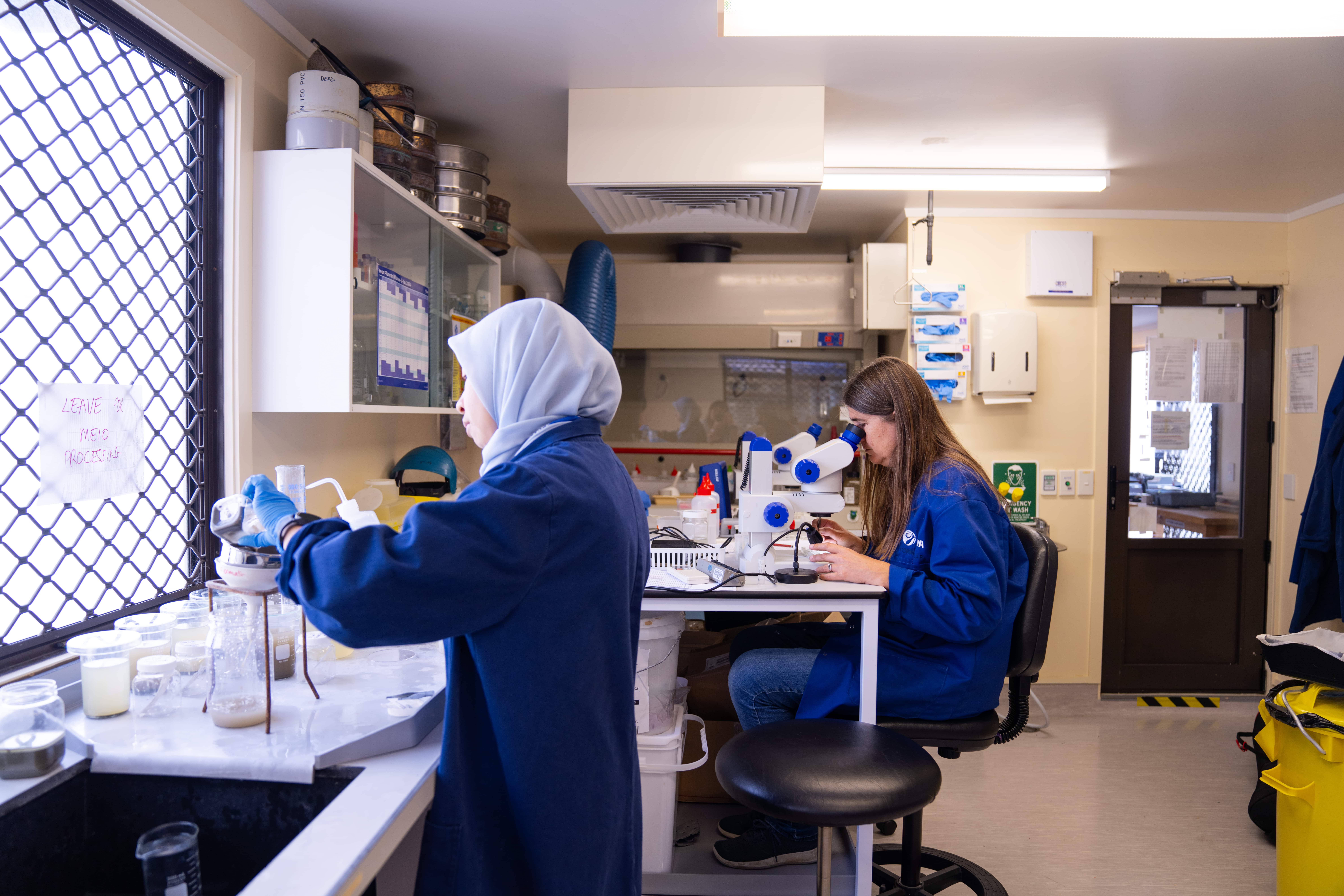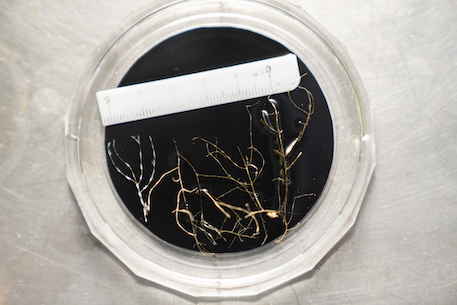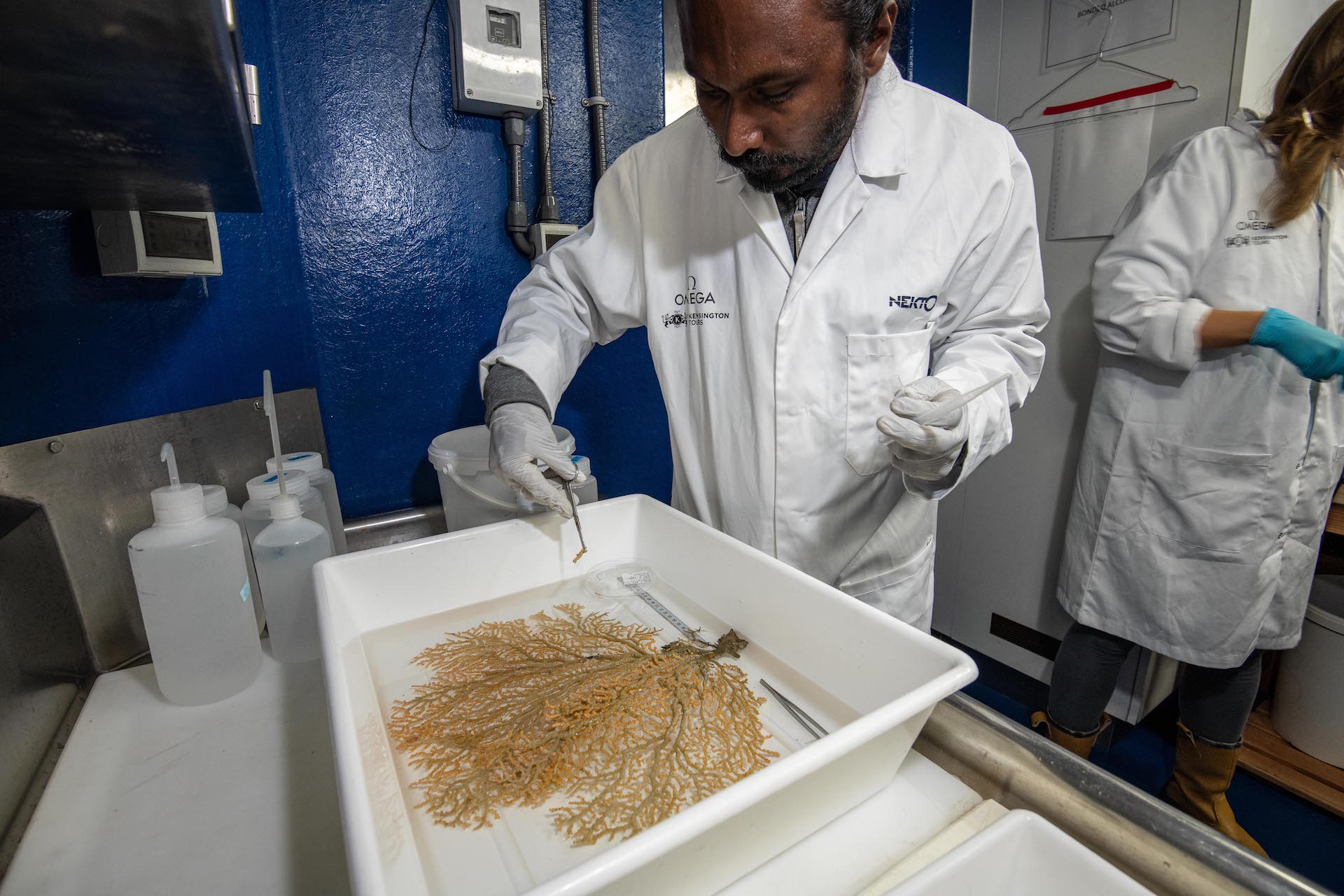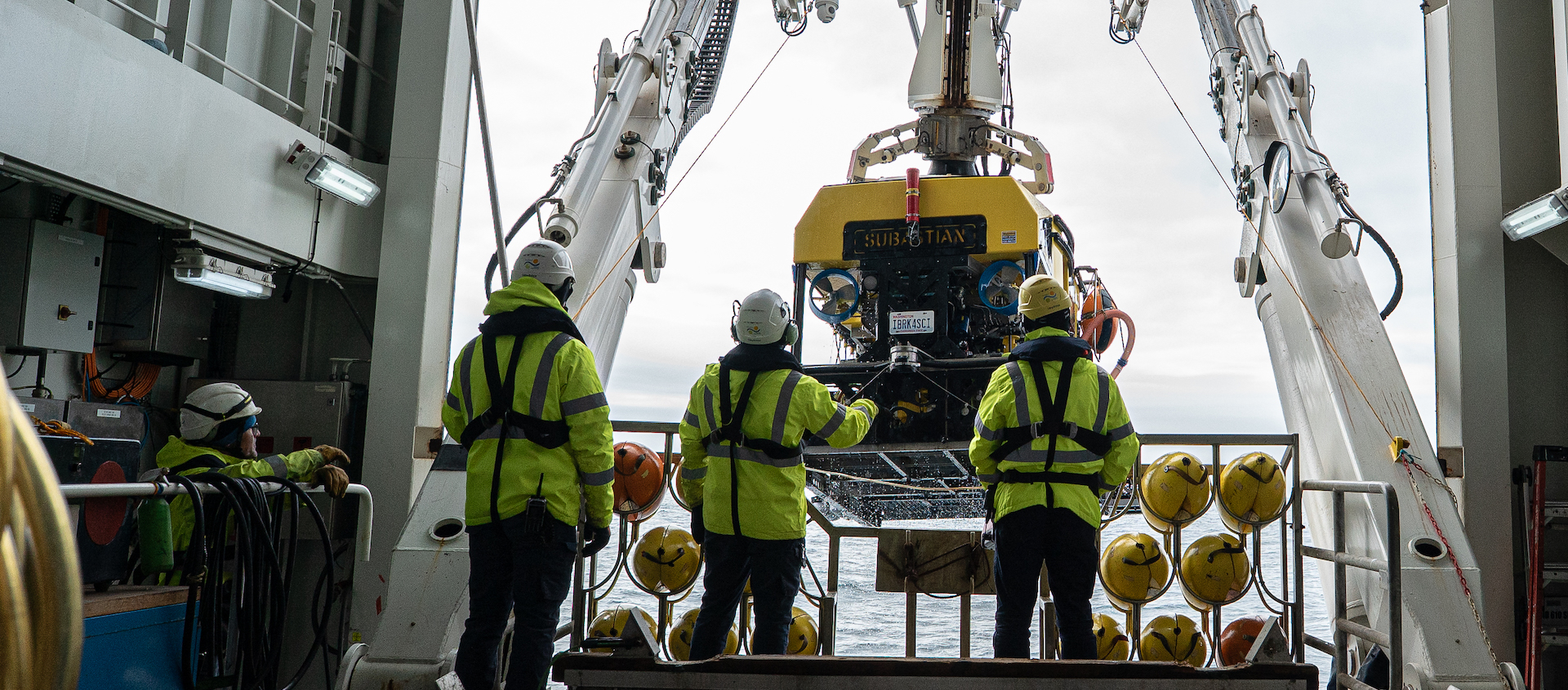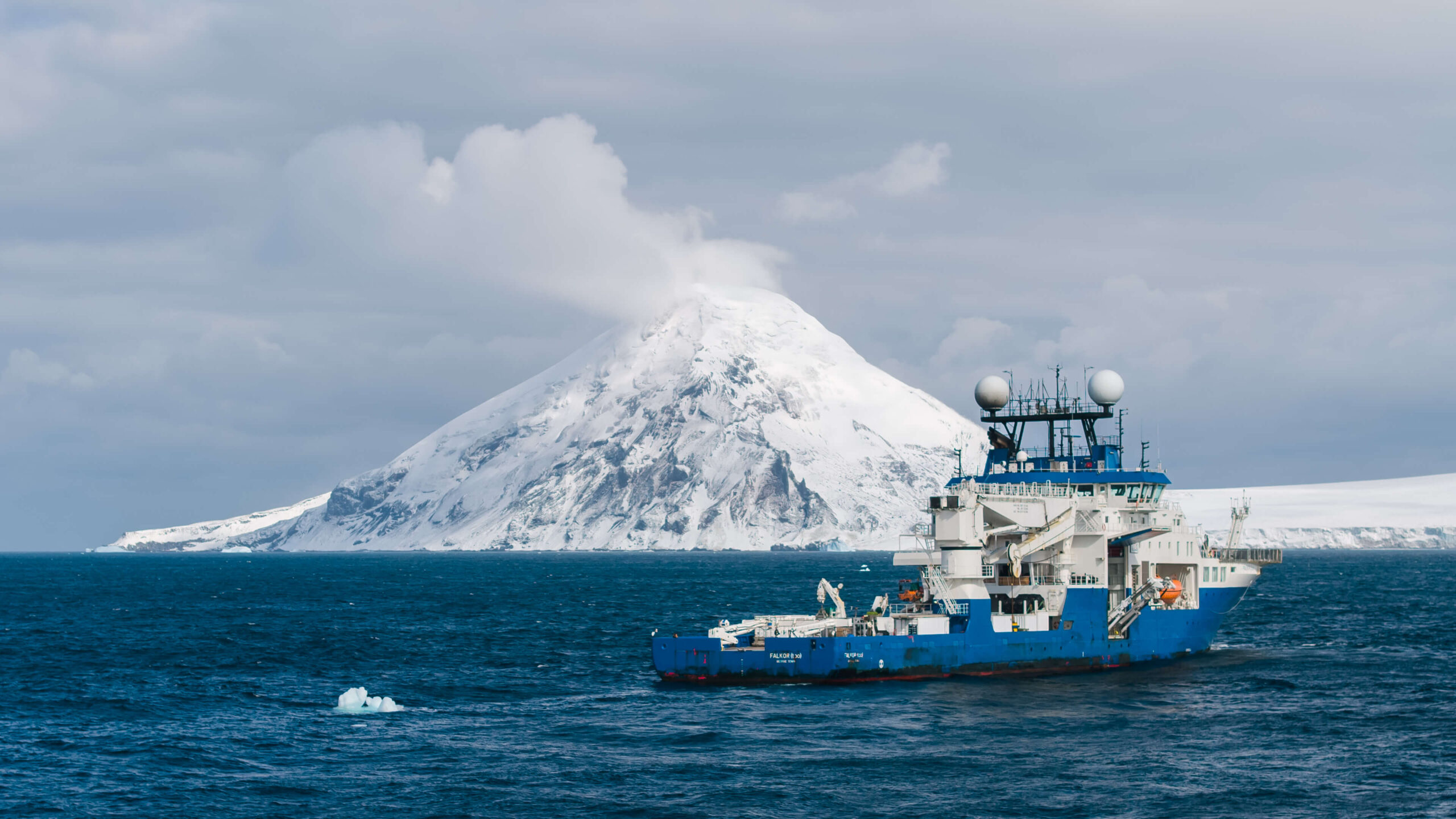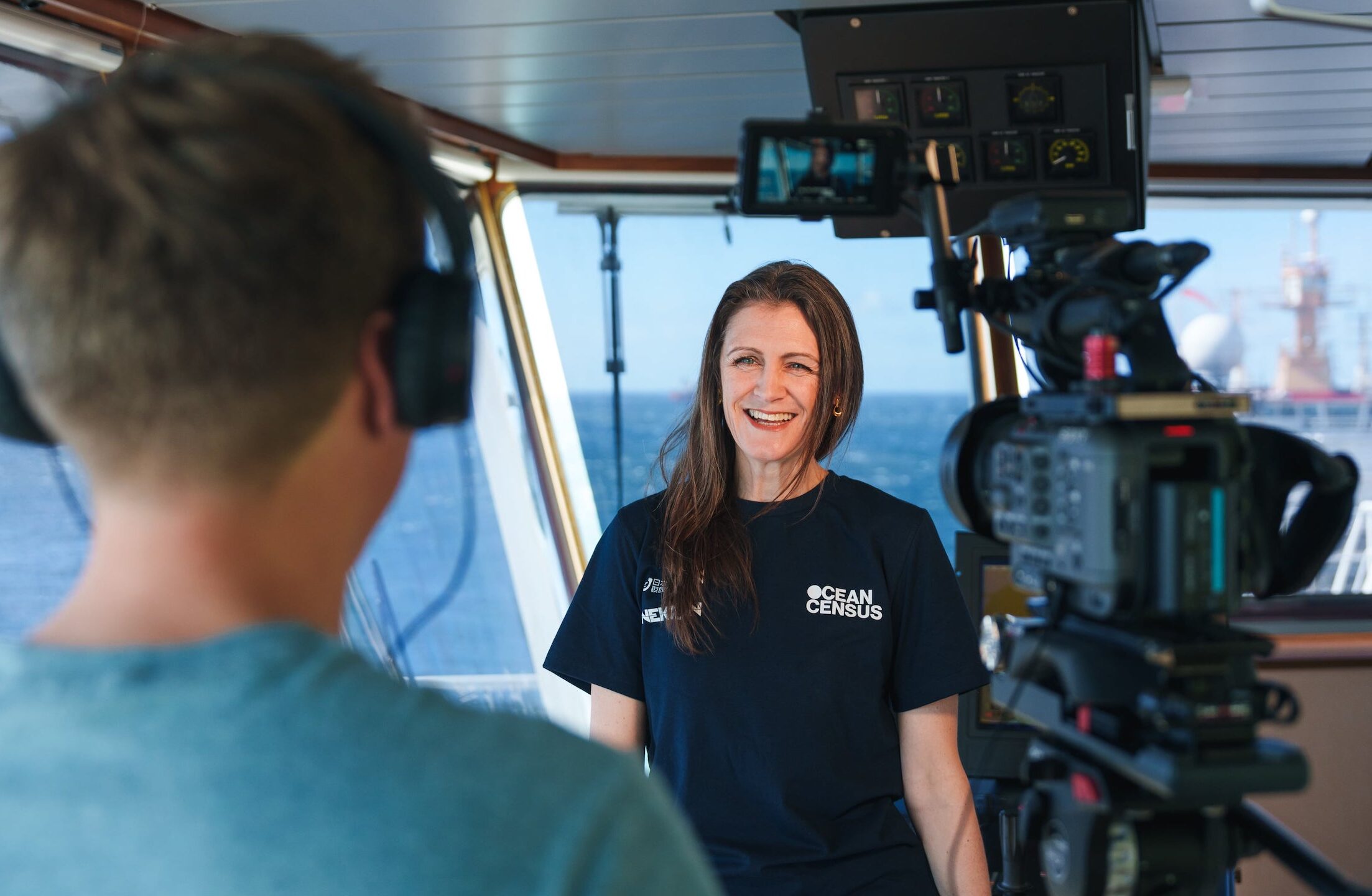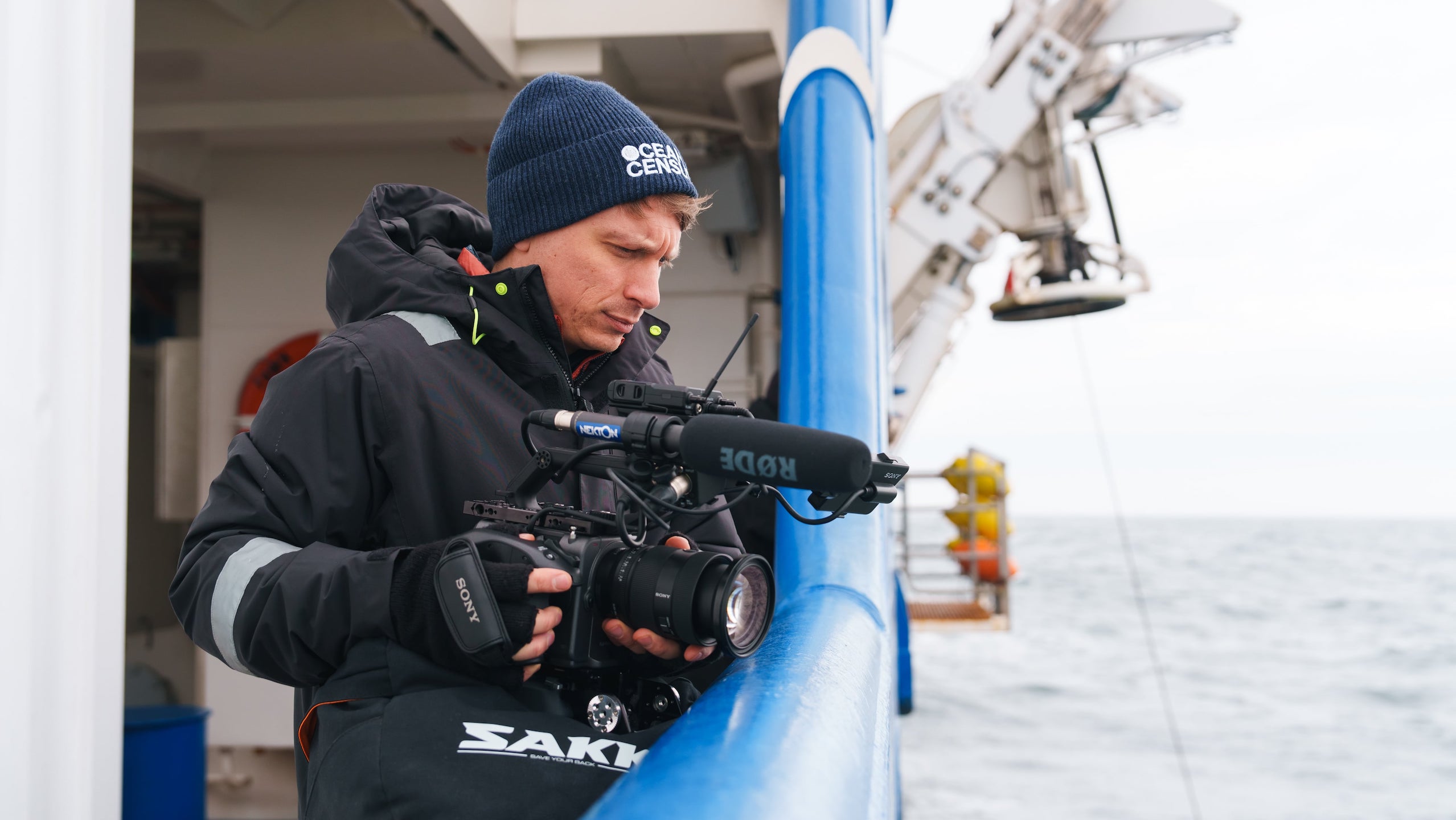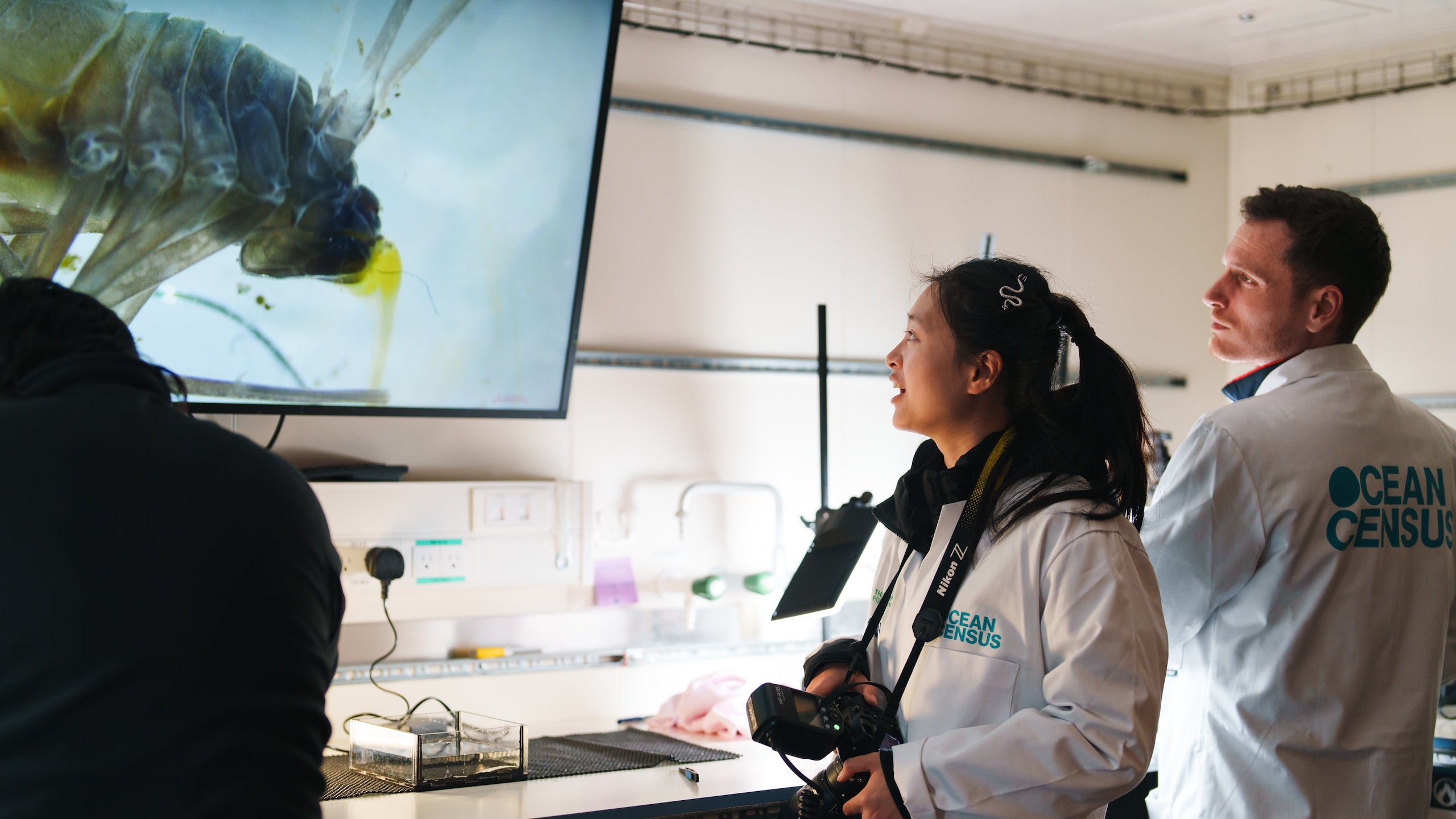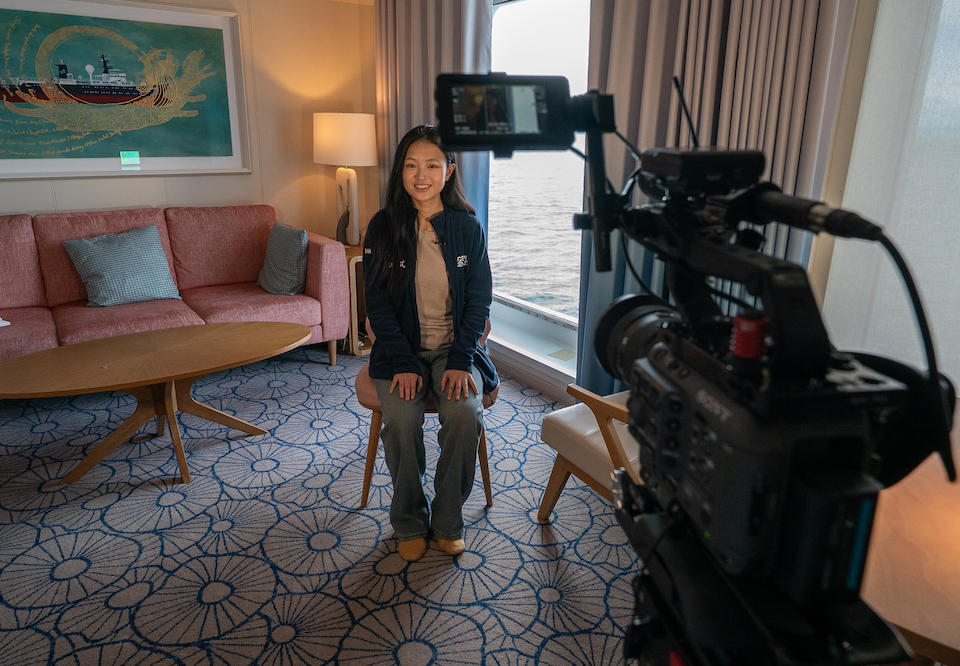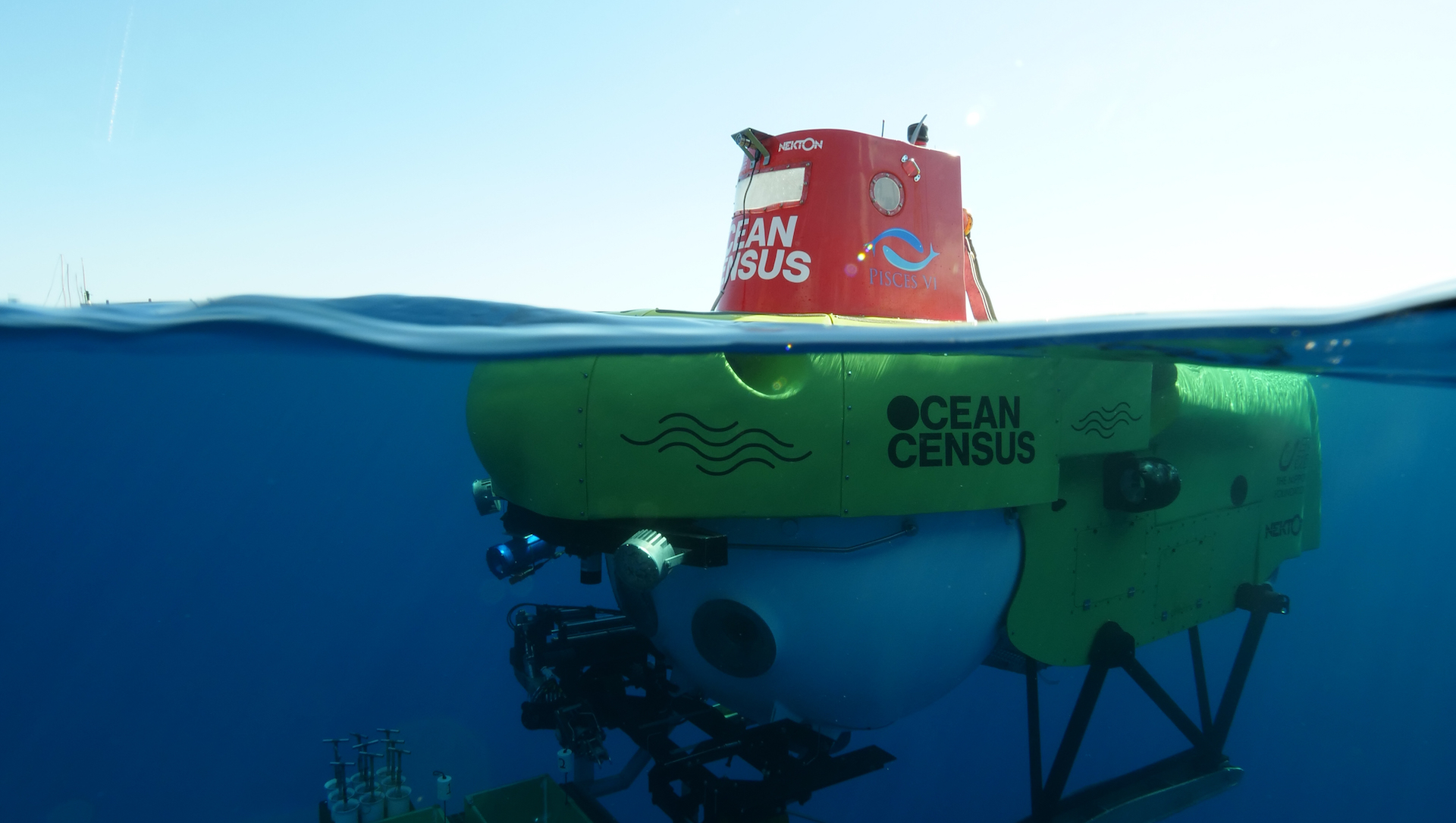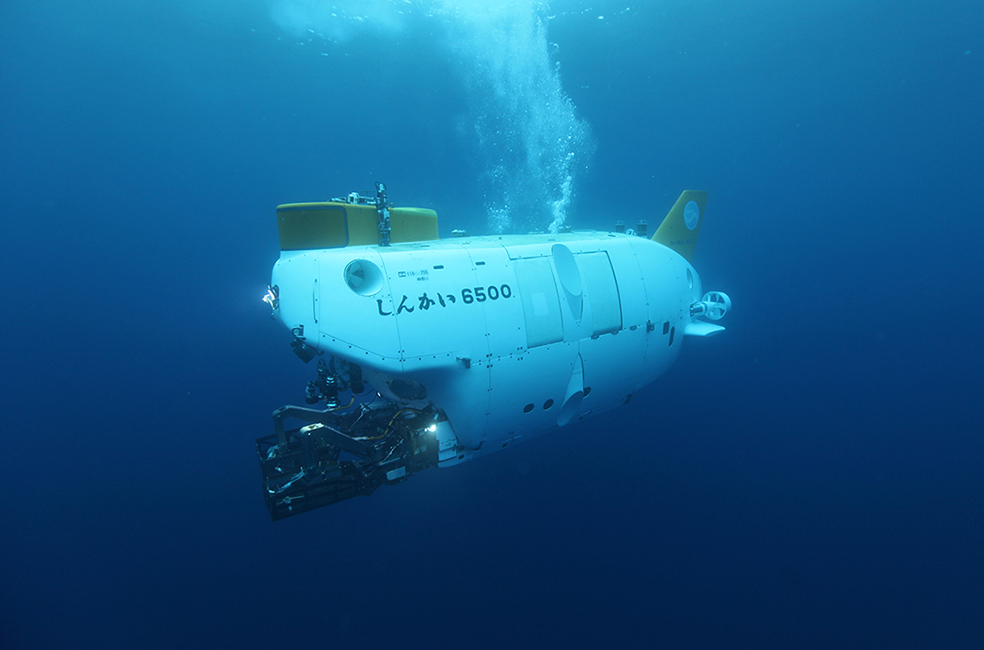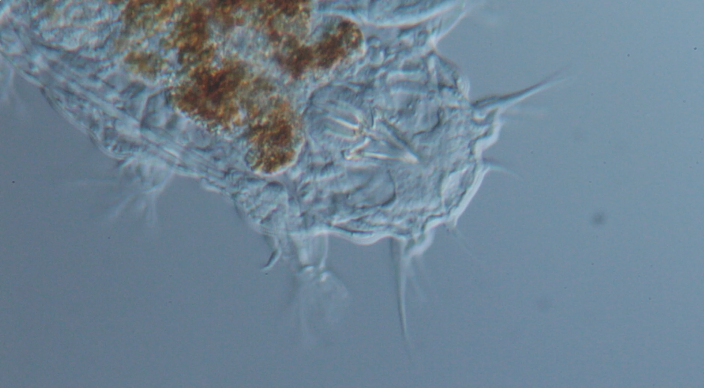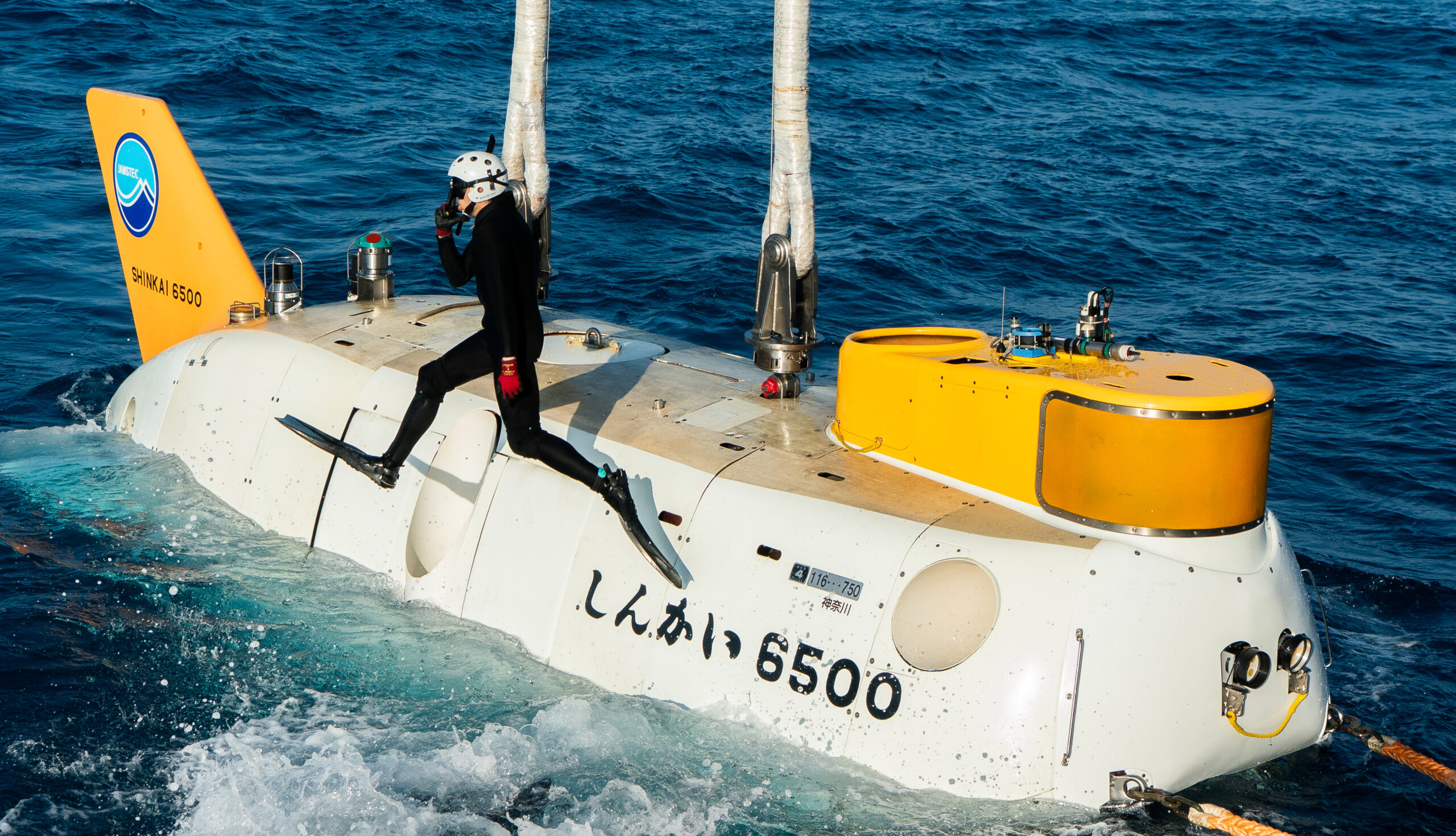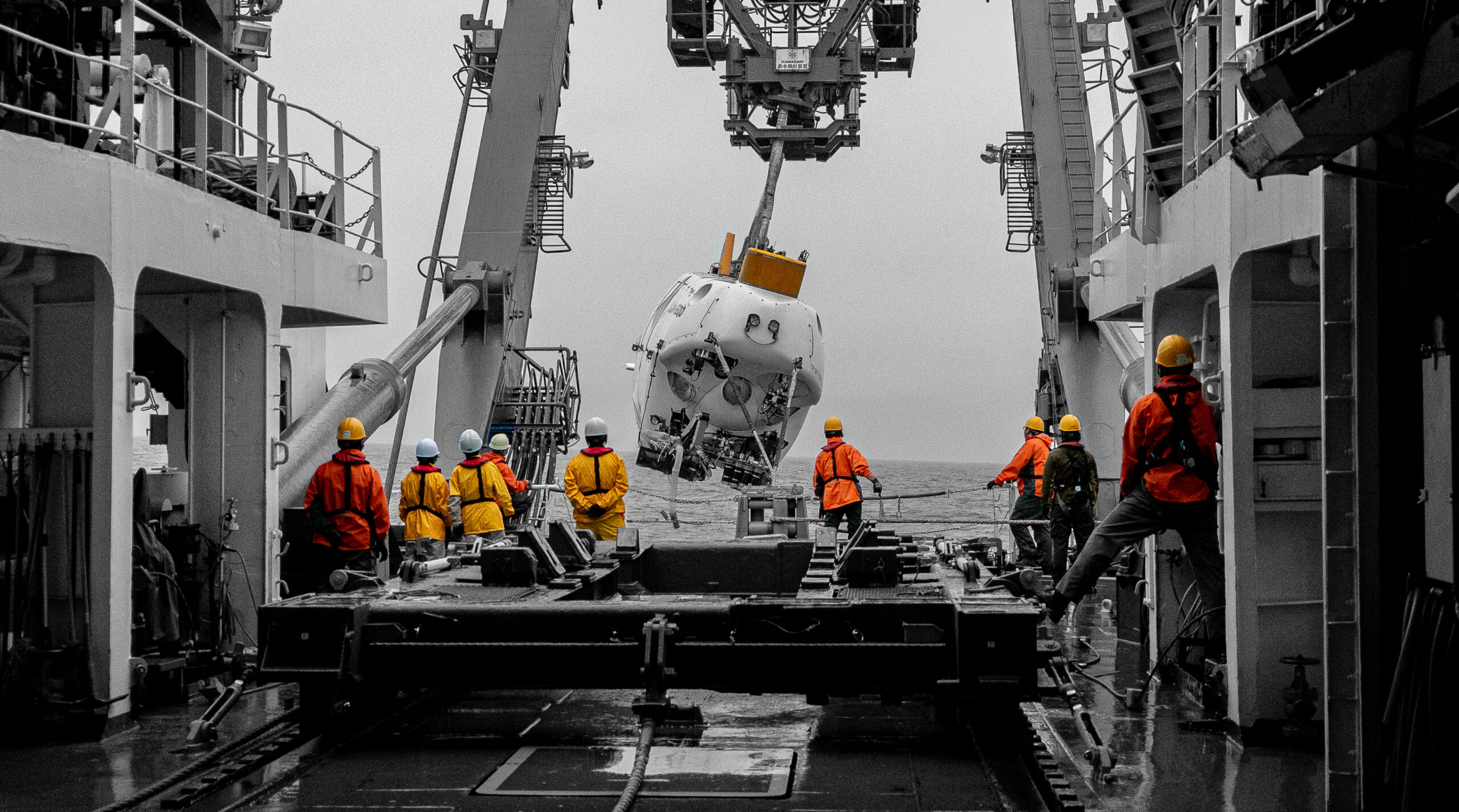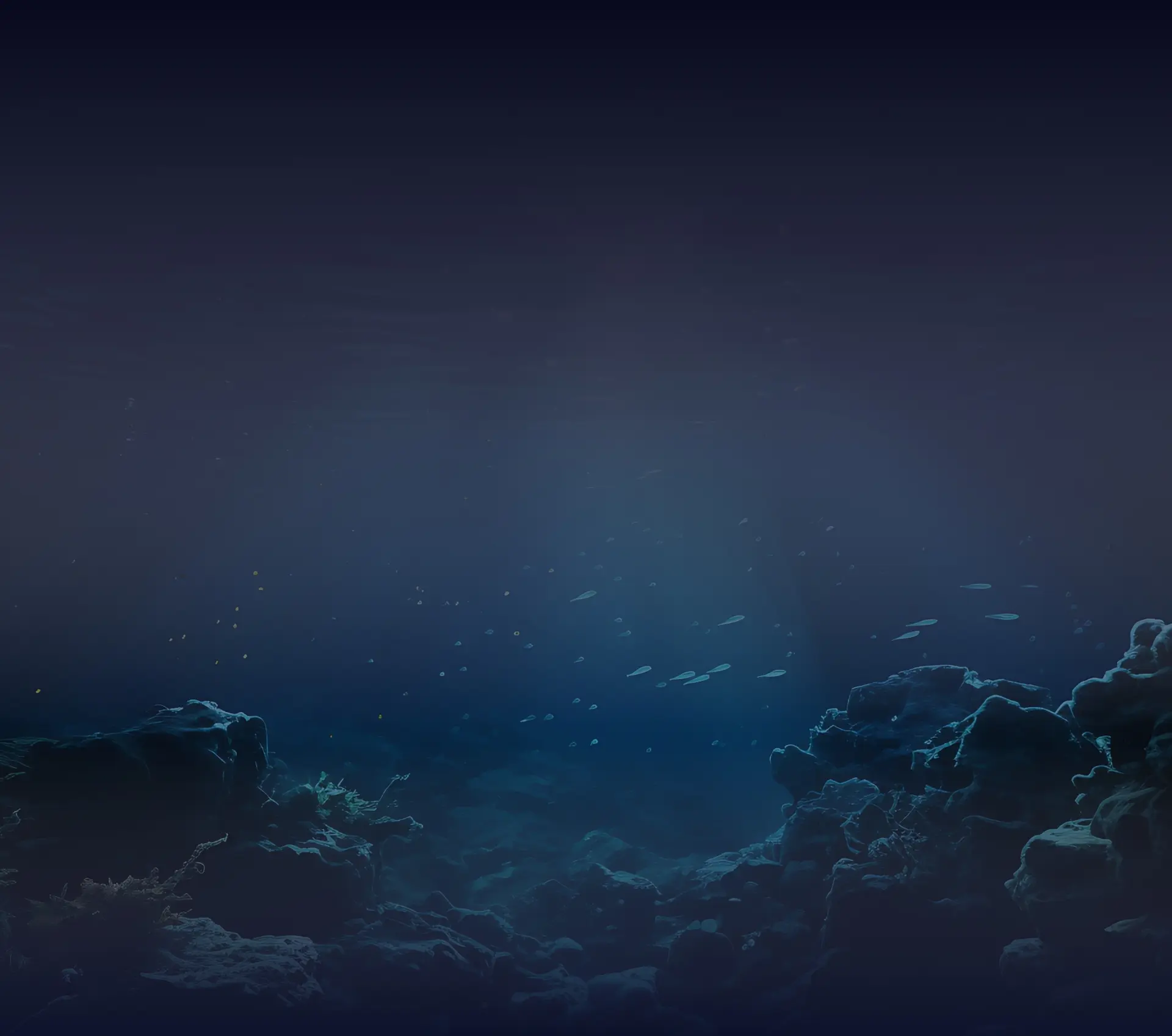
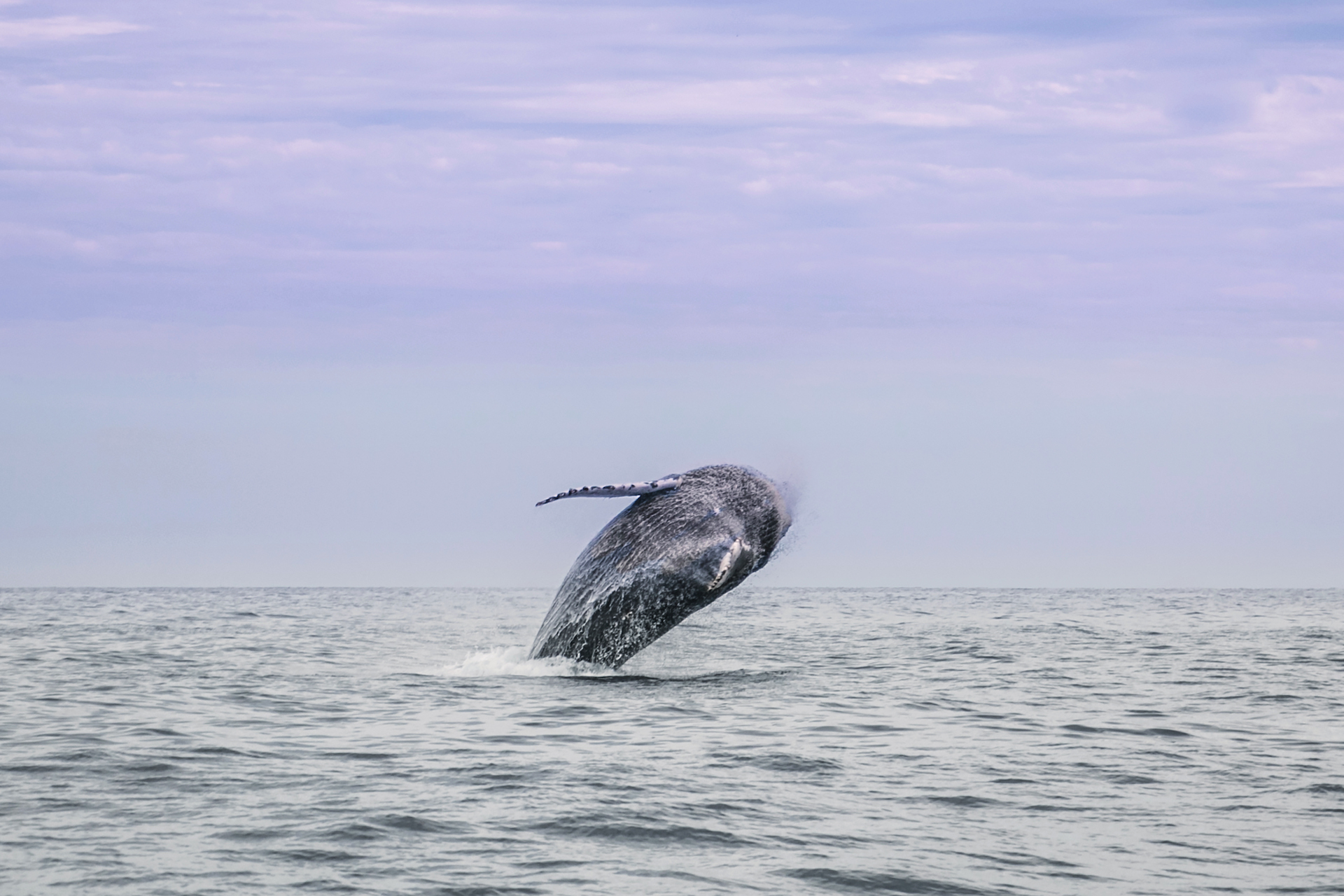
Read the Q&A with our Head of Expeditions, Joe Sharman
Q&A
“The solution to some of the biggest challenges we face as a planet will only be achieved achieved through global agreements and collaborative approaches.”
Joe recently joined Ocean Census as an Expedition Manager, where he supports the delivery of our fieldwork, conducted in partnership with a range of organisations worldwide. Previously a Project Manager with expertise in biodiversity monitoring and behavioural ecology, employing telemetry and acoustics, Joe has experience in data collection from remote areas across the globe, from the polar regions to the tropics. He is passionate about advancing our understanding of marine ecosystems. We caught up with Joe to talk more about his background and his aspirations for this role.
You’ve previously worked in a fascinating area of science, looking at how sound travels through the ocean. Can you tell us about your work and any research that you were involved in?
JS: Underwater acoustics is indeed fascinating — sound is such an important biological medium for communication, navigation, and predation. With the recent advancement of hydroacoustic technologies, it’s an exciting area of marine science to be a part of. My experience spans a range of applied science applications for acoustic sensing technology, but with my background in Marine Biology, my interests have always been piqued by bioacoustics. Of particular interest to me was understanding spatio-temporal changes in critical habitat use for species at risk and how this can be driven by human activities.
What’s your favourite thing about working in the field?
JS: The people! During my career in field science and expeditions, I have had the privilege of meeting and working with incredible people from all over the world. Expeditions are a great forum for breaking down socio-cultural barriers and everyone working together towards a common cause.
Do you have a favourite memory from your career so far?
JS: My favourite career experience so far would have to be sailing in small, traditional fishing boats (called ‘pirogues’) off the coast of western Madagascar with local fishers and being surrounded by breaching Humpback Whales. In every direction you looked, there was either a blow or a breach. With no engine noise from these boats and being so low to water, it truly was a unique platform to witness such an immersive experience.
What are your goals now that you have joined the Ocean Census programme team?
JS: My primary goal in this role is to leverage the experience I have gained in my career so far to accelerate this incredible and ambitious project, and contribute to the discovery of as many new species as I can. The appreciation of global biodiversity has always been my driving force and to be at the forefront of species discovery is a dream come true. My secondary (and more selfish) goal is to eventually get to do a deep-dive in a scientific submersible!
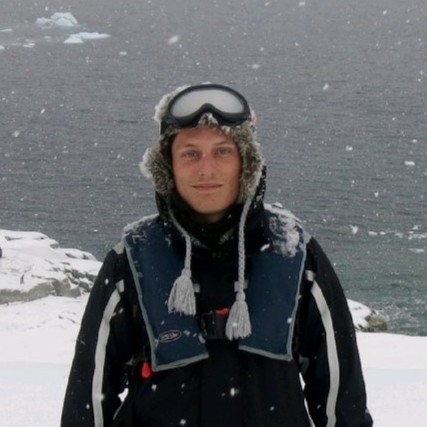
What do you think are the opportunities and challenges for ocean scientists right now?
JS: The accelerated development of new technologies offers marine scientists many opportunities. Whether it is new autonomous platforms for monitoring, or the enhancement of machine-learning driven algorithms for analysis and data crunching, it sure is an exciting time to be in science!
However, with so much uncertainty and misinformation in the world, it is also a challenging time. With the increasing threat of biodiversity loss in mind, I would just encourage people to ‘listen to the science’ and enable data-driven decision making at all levels.
And how do you think Ocean Census is helping?
JS: Ocean Census is providing a vital platform, not only to accelerate the discovery of new species, but also to foster international collaboration and capacity building through in-country partnerships in the host nations of our expeditions. For me this is the single most important aspect of our work, as the solution to some of the biggest challenges we face as a planet will only be achieved through global agreements and collaborative approaches.
If you’re a scientist interested in supporting our mission, we’re inviting specialists in taxonomy, marine biology and related fields to join the Ocean Census Science Network.
Related News
Join the census
An Alliance of scientists, governments, marine research institutes, museums, philanthropy, technology, media and civil society partners.
